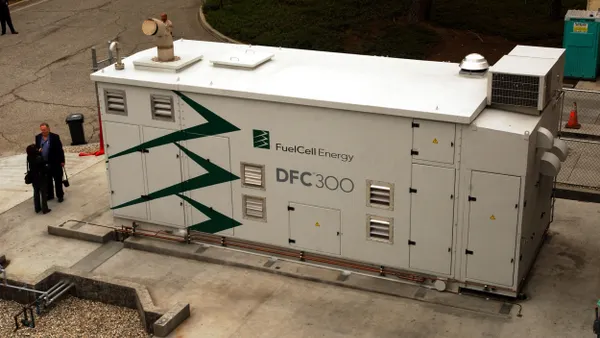California Gov. Gavin Newsom on Friday signed a package of energy bills into law that seeks to address rising energy costs, wildfire mitigation and climate funding.
Newsom said in a statement that the legislation would make it “easier to build the abundant clean energy we need to keep bills lower.”
“On top of all that, we’re doubling down on our best tool to combat Trump’s assaults on clean air – Cap-and-Invest – by making polluters pay for projects that support our most impacted communities,” he added.
Clean energy advocates and utilities welcomed many of the new provisions, although some lamented loss of funding for the state’s grid reliability programs, including a program advocates call the largest virtual power plant in the world.
The legislation signed by the governor includes the following:
- Extending cap-and-trade: AB 1207 renames California’s cap-and-trade program “cap-and-invest” and reauthorizes it through 2045.
- Cap-and-invest spending: SB840 reforms the structure of the cap-and-invest program and guarantees $1 billion a year for high-speed rail, as well as funding for affordable housing, transit, forestry and climate research. It also requires the California Air Resources Board to update its offset rules.
- Regional Western energy market: AB 825 paves the way for an independent body to oversee a regional Western energy market, something clean energy advocates have been pushing for years. It builds on the West-Wide Governance Pathways Initiative started in 2023.
- Transmission funding and wildfire reform: SB 254 establishes the California Transmission Accelerator Revolving Fund Program to build new transmission lines and adds $18 billion to the state’s wildfire fund.
- Oil production: SB 237 allows continued development of oil wells in Kern County and exempts those facilities from certain environmental reviews.
- Environmental justice: SB 352 codifies a new Bureau of Environmental Justice within the state’s Department of Justice and requires community air monitoring in select locations.
In a note last week, Capstone said its analysts believe that a West-wide energy market will benefit independent power producers in California, such as Vistra Corp. and NRG Energy, as well as battery storage operators like Tesla Inc. and Ameresco Inc. “as they get additional monetization opportunities through expanded day-ahead arbitrage and reserve products.”
Renewable energy developers such as AES Corp. and Clearway Energy Inc. “also stand to benefit from increased opportunities to export surplus energy,” it said.
Leah Rubin Shen, managing director at Advanced Energy United, praised the passage of the regional market legislation as “the culmination of nearly a decade of work to create a more flexible, reliable, and affordable energy future for the West.”
“AB 825 paves the way for an independently governed energy market that will deliver a more reliable grid, broader deployment of clean energy resources, and more affordable energy for consumers across the region,” she said in a statement.














